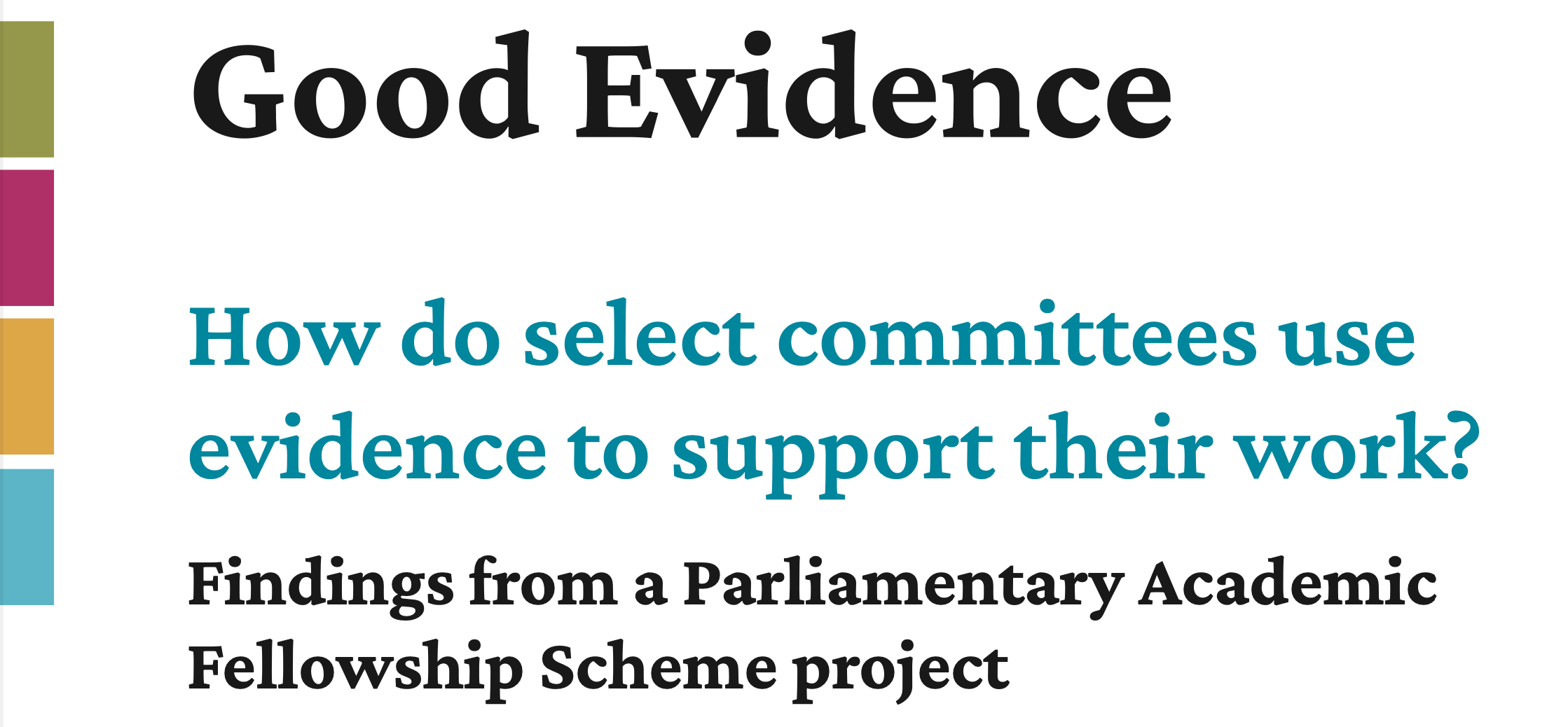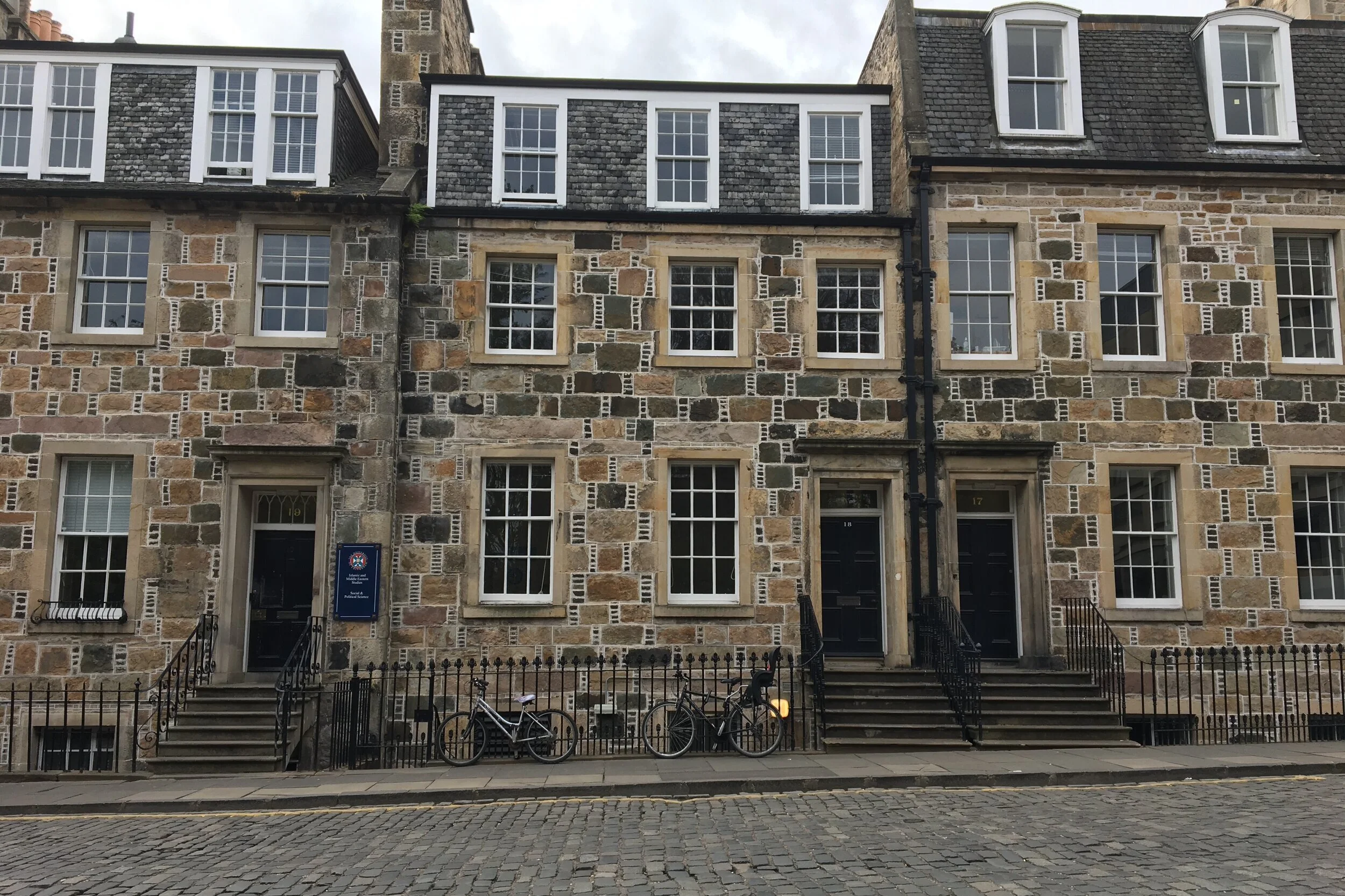Knowledge exchange and impact
How can academic research make a difference to improving society and politics?
This question is an important one to me. Throughout my academic career, I have felt it is very important to make sure that research can be policy-relevant. I therefore regularly engage with policy-makers and practitioners to exchange knowledge through written briefings, policy reports and seminars.
Within my field of research on parliaments, I have sought to ensure that the lessons of my research can and do improve the effectiveness of parliaments in fulfilling their democratic functions. This has predominantly focused on the UK and Scottish parliaments, given my area of expertise, though I am also interested in wider lessons for legislatures.
On these pages, I summarise how my research has engaged with policy-makers and practitioners to make parliaments more effective.
Recent KE and Impact activities
Committee effectiveness
A key strand of my research has focused on how parliamentary committees in the UK House of Commons seek to hold government to account. My research has led to a number of academic publications on the topic across journals and a book.
Using the insights from my research, I have been invited to private briefings for the Scottish and UK parliaments on improving accountability and scrutiny, including for the Liaison Committee and the Study of the Scottish Parliament Group, and public talks, such as the Study of Parliament Group’s anniversary conference on select committees in 2019.
My research has been cited in the recent UK House of Commons report on committee effectiveness as well as by the Commission on Parliamentary Reform.
What is ‘good’ evidence?
Building on my track record of research, I successfully applied for a Parliamentary Academic Fellowship with the UK House of Commons to study the evidence-gathering process by select committees.
This 12-month fellowship enabled me to work directly with a select committee to observe how committees work on a day-to-day basis to gather, analyse and use evidence; I was an inquiry manager for a small inquiry, so I experienced this first-hand. This, alongside 50 interviews with MPs and officials, informs my account.
The project raised all sorts of questions, not least what we mean by ‘good’ evidence use. I am in the editing phase of the final report, which was published in January 2023 (here). I aim to use my research expertise and this project to inform the Select Committee Team and support committees in being as effective as possible in holding government to account.
Evaluating Academic Engagement
Between June 2019 and March 2020, a colleague and I examined different types of academic engagement activities by the UK’s four legislatures to identify the diversity, strengths and weaknesses of different types of initiatives, resulting in one overarching report with thematic findings and four individual reports for each UK legislature.
Our research was widely cited in a collaborate research note written by the UK parliaments, who have also taken up some of our recommendations since the reports have been published (with the others being carefully considered).
Diversity of evidence
My research has been important in shaping a number of parliamentary processes to improve evidence use through a widely shared research paper on witness diversity of committees in the UK House of Commons.
Through my research, I suggested a recommendation in The Good Parliament report by Sarah Childs on tracking diversity more closely, which has since been adopted by the Liaison Committee.
I have presented my research to the Scottish Parliament in 2018 to support lesson learning. The Scottish Parliament has also published a report on witness diversity, in which my research is cited.
Finally, my data from my research informed the UK Parliament’s outreach activities by prioritising areas of the UK that have not traditionally engaged with Parliament, and were used to promote further academic engagement with Parliament.
Supporting KEI at the University of Edinburgh
In addition to my duties and responsibilities for research and teaching, between 2020 and 2022 I was Deputy Director of Research at the School of Social and Political Science, where I had oversight of knowledge exchange and impact. As part of this role, I introduced a new KEI Strategy for the School and reviewed good practices to ensure that our School’s world-leading research can flourish beyond the academy.





